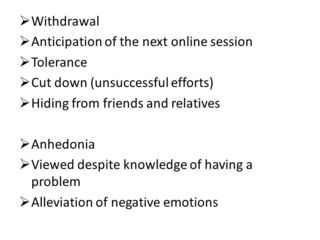
Personality
Through the Psychiatrist's Lens: Ex Machina
Deconstructing this Modern Frankenstein
Posted June 30, 2019
The Participatory Cinema at the Rutgers Center of Alcohol Studies is a monthly full-day seminar centered around a feature-length film that we flip as a fictional case study of mental illness. The purpose of the seminar is not to render diagnoses per se as it would run the risk of stigmatizing individuals with mental illness (films too often provide inaccurate portrayals of mental disorders). Instead, the selected film serves to stimulate discussion about the seminar’s topic. The following blog is a synopsis of this month's second Participatory Cinema discussion on Ex Machina (2010). Warning, this post contains spoilers!
Synopsis
The directorial debut of Alex Garland, Ex Machina, is a sci-fi psychological thriller that depicts Caleb Smith, a programmer who is invited to the estate of Nathan Bateman, the founder and CEO of Blue Book, a search engine company. Caleb has one week to administer the Turing test to an AI robot named Ava to see if she is genuinely capable of thought and consciousness. As of this posting, the film holds a 92% Tomatometer rating on Rotten Tomatoes and a score of 7.7 out of 10 on IMDb.
How it relates to Psychiatry
Nathan Bateman
The CEO of Blue Book depicts one of the most significant teaching points related to Substance Use Disorders for learners as well as patients. Of the 41 minutes and 8 seconds he is on the screen, the amount of time Nathan is with a drink is 20 minutes and 48 seconds. Of the remaining time (20 min 20 sec), Nathan spends 3 minutes and 2 seconds recovering from the effects of alcohol. Not only does the 3:02 result in Nathan being drunk for 59% of the film, it also illustrates an important aspect of Alcohol Use Disorder (AUD), specifically a great deal of time spent in activities necessary to obtain alcohol or recover from its effects.
The Original Ending (not quite)
I couldn’t help but notice that in his final scene (lasting 11:44), Nathan wasn’t drinking. If he was, he would have further demonstrated yet another sign of AUD; continued use of a substance in situations in which it is physically hazardous. It’s interesting that the DSM provides the example of “operating machinery” for this diagnostic criterion while the film takes the idea of a machine to a completely different level. If Nathan had been drinking in the final scene, his total time drinking would be adjusted to 35:34 or 85% of the film which brings us to a final teaching point. While a diagnostic criterion, one may not demonstrate the time spent to be afflicted with AUD. Many people feel that because “they only drink on weekends,” they don’t consider drinking to be a problem. It's incumbent on Additional Medicine to educate the general public on signs related to AUD beyond the time spent in activities necessary to obtain alcohol or recover from its effects.
The Loner
Social isolation plays a critical role in understanding the characters in the film. While Nathan’s paranoia upon first meeting Caleb appears state dependent (and therefore not indicative of Paranoid Personality Disorder), other Cluster A personality types should be considered. The Schizoid Personality Disorder is hallmarked by a pervasive pattern of detachment from social relationships and a restricted range of emotional expression in interpersonal settings. While individuals with Schizotypal Personality Disorder also demonstrate discomfort with close relationships, they characteristically have perceptual distortions and eccentricities of behavior that help differentiate from Schizoid Personality. I couldn’t help but think of Willy Wonka in trying to determine whether Nathan possessed the added eccentricities to rule-in for Schizotypal Personality Disorder. Nathan’s confession that the contest was a subterfuge is eerily similar to conspiracy theories about Willy Wonka and the Chocolate Factory (1971).
Caleb Smith
Keeping with the theme of Addiction Medicine, one need only remember the big reveal that Caleb didn’t actually win a competition and that he had been covertly recruited by Nathan to take part in the Turing test. Nathan selected Caleb as the “perfect lab rat” based on his keystrokes when surfing internet porn. Ava was built in the image of Caleb’s most intimate fantasies. While there’s little information offered beyond this, the proposed clinical criteria for internet addiction (1) can be remembered by the acronym WATCH AVA (Figure 1) which brings us to…

Ava
Ava’s character is a computer that’s literally not yet been invented. The film’s main theme, a computer’s capacity for consciousness, lays the foundation and formulation of Antisocial Personality Disorder as captured in Nathan’s dialogue with Caleb: “Though now I stop to think, there is a third option. Not whether she does or doesn't have the capacity to like you. But whether she’s pretending to like you” (2). Ava’s manipulation of Caleb is part of a pervasive pattern of social and interpersonal deficits marked by a blatant disregard for and violation of others’ rights that culminates in the respective deaths of Caleb and Nathan.
Conclusions
Ex Machina’s beauty lies in part in the film’s claustrophobic setting. The limited space forces viewers to focus on the dynamic between the film's main characters. Throw in a maladaptive bot and you have a recreation of Kubrick’s 2001: A Space Odyssey (1968). In our modern version, confining individuals with Alcohol Use Disorder, Internet Porn Addiction, and Antisocial Personality Disorder makes for a film that can only be viewed through the psychiatrist’s lens.
References
Tao R et al. Proposed diagnostic criteria for internet addiction, Addiction, vol 105(3), 556-64, February 2010 at https://doi.org/10.1111/j.1360-0443.2009.02828.x
Ex Machina script at the Internet Movie Script Database at https://www.imsdb.com/scripts/Ex-Machina.html

